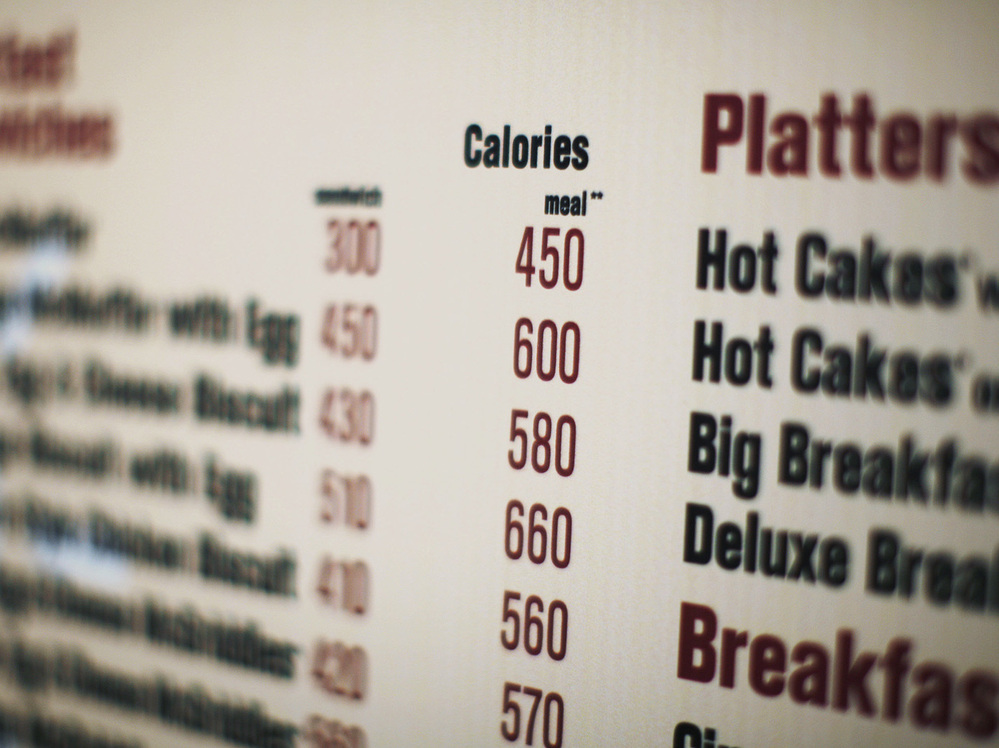 Enlarge image i
Enlarge image i Could it all be wrong? Some scientists say calorie counts are too inaccurate to be trusted.

Could it all be wrong? Some scientists say calorie counts are too inaccurate to be trusted.
Eat 200 calories of baby carrots, and you're going to be doing a lot more chomping than if you eat 200 calories of gummy bears. Any dieter can tell you that. So can a 200-calorie photo shoot that's making the rounds on the Internet this week. But when it comes to losing or maintaining weight, a calorie is a calorie is a calorie, right?
Maybe not.
Just as the federal government is getting ready to launch a nationwide requirement for posted calorie counts in restaurants, some scientists are mounting an assault on the century-old system for measuring the calories, saying it doesn't accurately measure the energy people get from food.
To be clear, "we think food labels are a good idea," says Rachel Carmody, a postdoc at Harvard University who studies how cooking and processing changes food energy. "We just want to make sure that the information communicated is as accurate as possible."
The current standard, called the Atwater system after the USDA scientist who invented it, assigns carbohydrates and proteins 4 kilocalories of energy per gram, and fat 9 kilocalories per gram. (A kilocalorie is a measure of energy equal to 1 Calorie, people.) But it doesn't assign any calorie value to fiber, for example, so people eating whole grains are consuming more calories than they realize.
Carmody helped organize a symposium in Boston Monday at the American Association for the Advancement of Science's annual meeting, which chewed over some of the big beefs that she and other researchers have with calorie counts, based on new research. Among their points of contention:
- It's much easier for the body to extract nutrients from cooked and processed foods than from whole or raw foods. People get more energy per ounce out of cooked hamburger than they would from a raw steak.
- Refined carbohydrates foods with a high glycemic index make people hungrier sooner than an equivalent calorie amount of whole grains, encouraging overeating.
- Some foods, like almonds, deliver a lot fewer calories than they contain, probably because we don't chew them enough to fracture all the cell walls and release fats.
- Calorie counts don't account for the 5 to 30 percent of energy used up in digesting and absorbing a meal.
The fact that these variations aren't reflected in calorie counts make work harder for scientists who actually study this stuff, Carmody says, and could leave consumers falsely reassured by package labels.
"We're not recommending that people not pay attention to food labels," Carmody told The Salt. Instead, she hopes that people "realize that something that's more highly processed is going to represent more calories than in a less-processed form."
But don't think you can throw away your dogeared 1990s calorie counter guide just yet. Calorie counts still have many fierce partisans among nutritionists and public health officials, who say the bottom line is still all about how much you put in your mouth.
One is Marion Nestle, a professor of nutrition, food studies and public health, and author of the 2012 book "Why Calories Count." Despite the inaccuracies in the Atwater system, she says, when it comes to obesity, the biggest problem is that people are eating too much.
"One point is clear," she recently wrote. "Larger portions have more calories. The easiest way to prevent weight gain is to eat less by choosing smaller portions, fewer snacks and healthier meals in general."
That said, it would be nice if posted calorie counts were accurate. As filmmaker Casey Neistat recently found out, that's often not the case.
Neistat took some of his favorite New York City foods to a laboratory at the New York Obesity Nutrition Research Center for testing. Four out of the five items tested had more calories than the label promised. The Subway turkey sandwich was the only one to contain fewer calories, while a "healthy" tofu sandwich from another outlet had almost twice as many calories as listed. (Check out his charming "calorie detective" video for the whole scoop.)
Expect to hear more soon from Rachel Carmody and her fellow partisans, as they build the case against the hegemony of the calorie.
Topic Galleries -- OrlandoSentinel.com Topic galleries provide easy access to stories and photos about people, places, organizations, events and subjects of interest to you. They bring together rich ... What is Nihilism? CounterOrder.com Nihilism described, explained and conveniently packaged for public distribution. Topic Galleries -- South Florida Sun-Sentinel.com Topic galleries provide easy access to stories and photos about people, places, organizations, events and subjects of interest to you. They bring together rich ... Topic Galleries -- chicagotribune.com Topic galleries provide easy access to stories and photos about people, places, organizations, events and subjects of interest to you. They bring together rich ... Four bad arguments against evolution Pharyngula Bryan Fischer claims that anyone is capable of defeating Darwin in 4 easy steps, all they have to do is remember his four scientific arguments. The Inanity of Overeating - Gary Taubes Author of Why We Get ... My new book is coming out at the end of the month. Its called Why We Get Fat and the subtitle is What To Do About it. The book concentrates more on the first ... Death By Vaccination Vaccines 2009 Autism 2011: Vaccinations before age 5 2009: Deaths per 1000 under 5 yrs old, 2009: Autism Rate in 2011: Lifespan Ranking Torture, Rendition, and other Abuses against Captives in US ... Albert Biderman, an Air Force sociologist, publishes a study that notes how brainwashing had been achieved by depriving prisoners of sleep, exposing them to ...
No comments:
Post a Comment